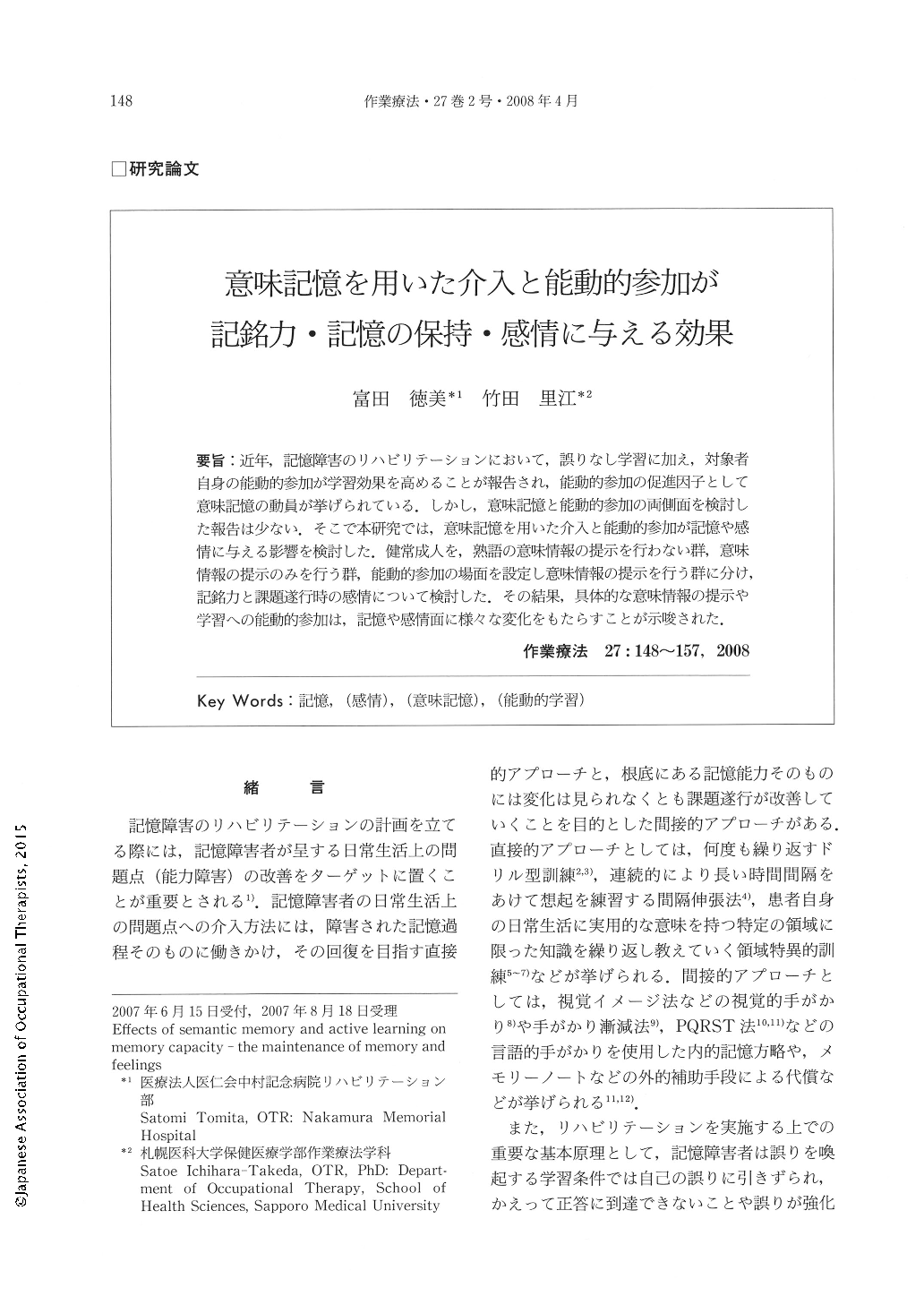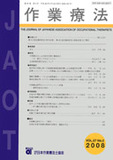Japanese
English
- 販売していません
- Abstract 文献概要
- 1ページ目 Look Inside
- 参考文献 Reference
- サイト内被引用 Cited by
要旨:近年,記憶障害のリハビリテーションにおいて,誤りなし学習に加え,対象者自身の能動的参加が学習効果を高めることが報告され,能動的参加の促進因子として意味記憶の動員が挙げられている.しかし,意味記憶と能動的参加の両側面を検討した報告は少ない.そこで本研究では,意味記憶を用いた介入と能動的参加が記憶や感情に与える影響を検討した.健常成人を,熟語の意味情報の提示を行わない群,意味情報の提示のみを行う群,能動的参加の場面を設定し意味情報の提示を行う群に分け,記銘力と課題遂行時の感情について検討した.その結果,具体的な意味情報の提示や学習への能動的参加は,記憶や感情面に様々な変化をもたらすことが示唆された.
Recent studies have shown that the subject's active participation improved the learning effect, in addition to the errorless learning. The purpose of this study is to know the effects of the semantic memory on the function of the memory and feelings. To know this issue, we investigated 60 healthy subjects. The subjects were divided into three therapeutic groups of the presentation of semantic information, no presentation of semantic information, and the presentation of semantic information and the setting of the active participation. As a result, the presentation of semantic memory improved the activity, motivation, and memory capacity. In addition, the setting of the active participation contributed to the maintenance of memory. These results indicate that the concrete presentation of the semantic memory and the setting of active participation gave positive influences on the function of the memory and feelings.

Copyright © 2008, Japanese Association of Occupational Therapists. All rights reserved.


